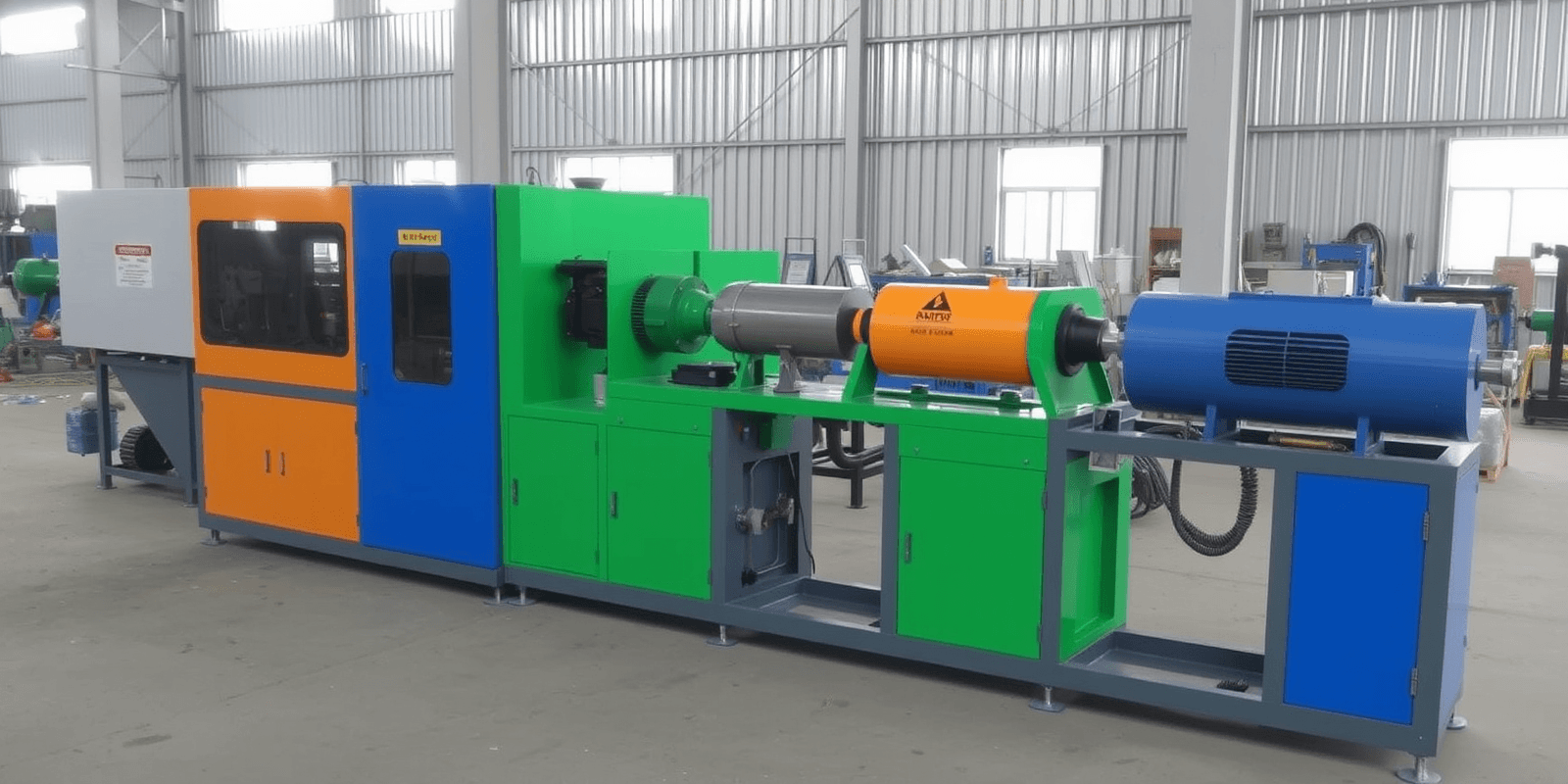Physical Address
304 North Cardinal St.
Dorchester Center, MA 02124
Physical Address
304 North Cardinal St.
Dorchester Center, MA 02124

In the face of increasing environmental concerns and the challenge of managing plastic waste, the importance of effective plastic recycling systems has never been more critical. Plastic bottles, one of the most prevalent types of waste found in landfills and oceans, constitute a significant part of the global plastic pollution problem. Recycling lines specifically designed for plastic bottle processing are essential to address this issue. This article provides an overview of the best plastic bottle recycling lines available today, highlighting their features, advantages, and the technology that makes them stand out.
Plastic pollution has severe implications for ecosystems, human health, and the economy. Each year, millions of tons of plastic waste end up in our oceans, affecting marine life and entering the food chain. Recycling not only helps reduce the volume of waste but also conserves resources, mitigates environmental impact, and introduces economic opportunities within the recycling industry. Efficient plastic recycling lines are fundamental in transforming waste into valuable resources while promoting sustainability.
To successfully process plastic bottles, recycling lines should incorporate several essential features:
Effective recycling lines begin with an advanced collection and sorting system that can separate plastic bottles from other waste types. Automated sorting technologies, including optical sensors and air classifiers, help ensure high purity levels of collected materials, enhancing the quality of recycled products.
Once sorted, plastic bottles must be shredded into smaller pieces. Modern recycling lines employ industrial shredders equipped with high blade counts and adjustable settings, allowing for customized shredding to achieve the optimal size for further processing.
Plastic bottles may contain residues, labels, and contaminants that compromise recycling quality. Hence, washing systems play a crucial role in recycling lines, utilizing water and detergents or advanced technologies such as ultrasound cleaning to remove impurities effectively.
The final stage in many recycling processes is extrusion, where shredded plastic is melted and reformed into pellets. These pellets serve as feedstock for new plastic products. State-of-the-art extrusion lines integrate control systems that ensure uniformity and quality in the final product.
Automation is a game-changer in modern recycling lines. Integrated control systems facilitate real-time monitoring and analysis of the recycling process, allowing operators to optimize performance and reduce downtime.
Several cutting-edge plastic bottle recycling lines stand out in today’s market due to their advanced features, efficiency, and positive environmental impact.
ALBA Group is known for its sophisticated recycling technologies. Their plastic bottle recycling line showcases an innovative sorting system using near-infrared technology to identify and separate different types of plastics effectively. The line also employs high-efficiency shredders and a multi-stage washing system that ensures the cleanliness of the input material, resulting in high-quality recycled PET pellets. The advantages include low energy consumption and a significant reduction in contaminants, allowing for more sustainable recycling practices.
Tomra offers state-of-the-art sorting solutions that utilize artificial intelligence and machine vision for efficient sorting of plastic waste. Their recycling lines provide high sorting accuracy and throughput, making them suitable for both large-scale operations and smaller facilities. The lines are modular, allowing operators to scale their systems according to specific needs while maintaining the quality of sorted materials. The advantage lies in their adaptability and the precision of their latest sorting technologies.
Vecoplan specializes in shredding and recycling technology and has crafted high-performance recycling systems for plastic bottles. Their lines integrate a powerful combination of shredding and granulating equipment, which maximizes recovery rates and minimizes product contamination. Vecoplan’s energy-efficient designs and exceptional durability ensure long-term operation with reduced maintenance costs, making them a wise investment for recycling facilities.
For operations requiring flexibility, Powerscreen provides mobile recycling lines that can be transported to remote locations. These lines are equipped to handle various types of plastic waste, including bottles, and feature integrated sorting and shredding systems. The mobility of these machines allows for onsite processing, which helps reduce transportation costs and emissions associated with moving waste to fixed locations.
EREMA stands out with its innovative recycling technologies that focus on producing food-grade recycled PET (rPET). Their systems employ advanced washing and extrusion technologies to guarantee the purity necessary for food applications. EREMA’s products not only support closed-loop recycling but also significantly reduce the carbon footprint associated with plastic production, reinforcing the circular economy.
Investing in advanced plastic bottle recycling lines provides a multitude of benefits, including:
Modern recycling lines are designed to achieve high recovery rates. By optimizing sorting, shredding, and washing processes, these systems ensure that the maximum amount of usable material is reclaimed, reducing waste.
By recycling plastic bottles, these systems contribute to decreased plastic pollution and help conserve the natural resources required for virgin plastic production. This results in lower greenhouse gas emissions and a healthier ecosystem.
Investments in recycling infrastructure can lead to job creation and stimulate local economies. As more materials are recycled, businesses can emerge within the recycling supply chain, from collection to manufacturing, creating a sustainable economic model.
As governments worldwide continue to implement stricter regulations on plastic use and waste management, modern recycling lines help businesses comply with these requirements. This ensures continuity in operations without the risk of legal repercussions.
The future of plastic bottle recycling hinges on the efficiency and effectiveness of recycling lines. As technological advancements continue to reshape the recycling landscape, investing in modern recycling systems is vital for addressing plastic waste challenges. Not only do these lines improve the recovery rates of recyclable materials, but they also promote sustainable practices and economic growth. By featuring advanced sorting, shredding, washing, and extrusion technologies, leading recycling lines are essential players in the fight against plastic pollution. The continued development of these systems will play a crucial role in creating a cleaner and greener environment for future generations.